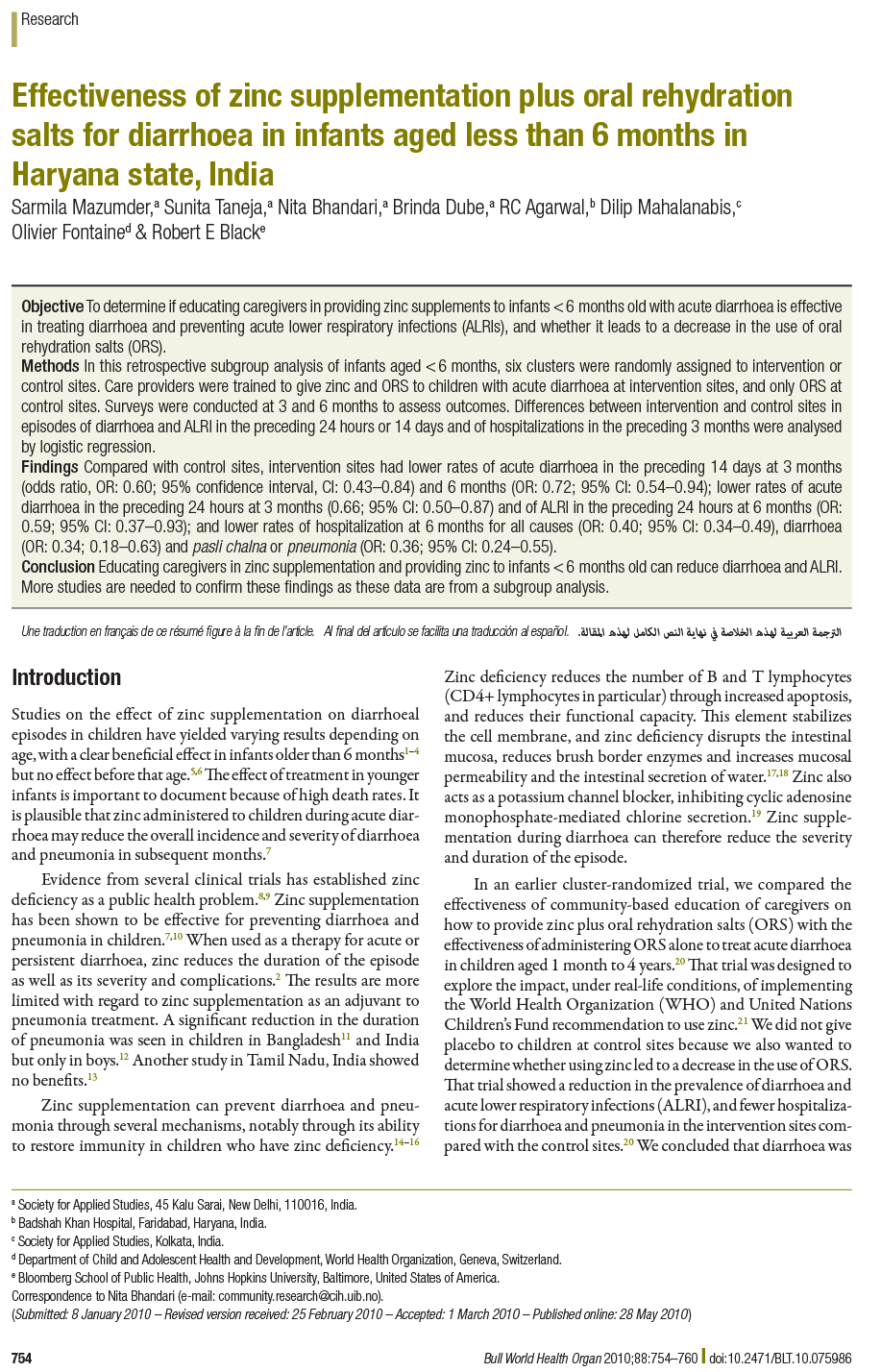
Resource Library
Effectiveness of Zinc Supplementation Plus Oral Rehydration Salts for Diarrhoea in Infants Aged Less than 6 Months in Haryana State, India
Objective: To determine if educating caregivers in providing zinc supplements to infants <6 months old with acute diarrhoea is effective in treating diarrhoea and preventing acute lower respiratory infections (ALRIs), and whether it leads to a decrease in the use of oral rehydration salts (ORS).
Methods: In this retrospective subgroup analysis of infants aged <6 months, six clusters were randomly assigned to intervention or control sites. Care providers were trained to give zinc and ORS to children with acute diarrhoea at intervention sites, and only ORS at control sites. Surveys were conducted at 3 and 6 months to assess outcomes. Differences between intervention and control sites in episodes of diarrhoea and ALRI in the preceding 24 hours or 14 days and of hospitalizations in the preceding 3 months were analysed by logistic regression.
Findings: Compared with control sites, intervention sites had lower rates of acute diarrhoea in the preceding 14 days at 3 months (odds ratio, OR: 0.60; 95% confidence interval, CI: 0.43–0.84) and 6 months (OR: 0.72; 95% CI: 0.54–0.94); lower rates of acute diarrhoea in the preceding 24 hours at 3 months (0.66; 95% CI: 0.50–0.87) and of ALRI in the preceding 24 hours at 6 months (OR: 0.59; 95% CI: 0.37–0.93); and lower rates of hospitalization at 6 months for all causes (OR: 0.40; 95% CI: 0.34–0.49), diarrhoea (OR: 0.34; 0.18–0.63) and pasli chalna or pneumonia (OR: 0.36; 95% CI: 0.24–0.55).
Conclusion: Educating caregivers in zinc supplementation and providing zinc to infants <6 months
This report was contributed as a resource for the SHOPS Zinc e-Conference held on June 1-2, 2011.
Resource Type : Brief
Country : India
Year : 2011-06-01T00:00:00
Language : English
Project : SHOPS


